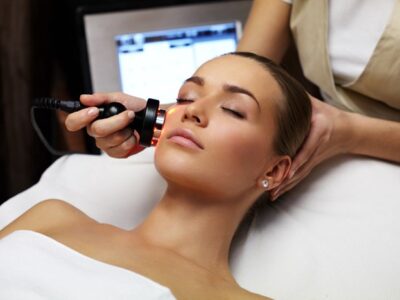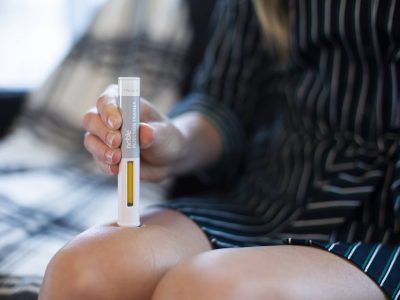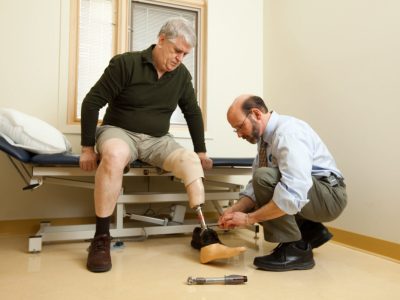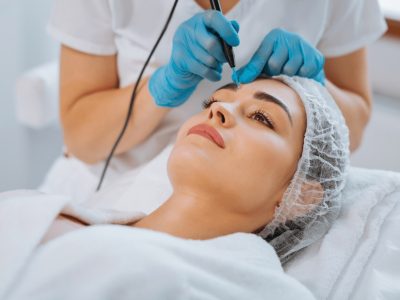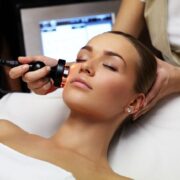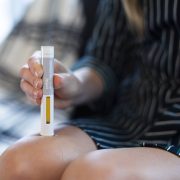
Low testosterone (Male hypogonadism, also known as male hypo-andropause) is a medical condition where the male testicles (male reproductive glands) don’t produce sufficient testosterone (a male sexual hormone). This can lead to a number of serious effects in male sexual function including decreased sperm production, reduced muscle mass and strength, decreased libido, infertility and erectile dysfunction. There are a number of possible causes for low testosterone levels. These include:
The symptoms of low testosterone are usually very subtle. In many cases, they occur in older males with declining health. Low Testosterone often sets in after a number of years of poor health due to disease or a chronic illness. Symptoms in younger men might include excessive body hair, obesity and shrinking testicles. As an alternative to pharmaceutical treatment, there are a range of natural treatments which aim to improve male sex drive, promote robustness and increase energy levels.
One of the most popular alternative treatments for low testosterone levels is penis enlargement surgery (commonly called a penis enlargement or male enhancement surgery). This involves the surgical insertion of silicone or other implants into the penis in order to allow for the gradual release of Tostra, a synthetic form of testosterone. By taking Tostra orally, male patients can help their bodies to produce higher levels of testosterone naturally. However, some men find that these supplements do not work as they expect, so it is often recommended that they seek medical advice before beginning any kind of male enhancement treatment.
If you have any concerns about your health and are worried about low testosterone levels, then discuss your thoughts with your doctor or health care provider. Your doctor may suggest that you take a hormone replacement therapy (HRT), which helps your body to replace lost testosterone levels by synthesizing it. Common HRT treatments include cream, tablets, injections, and gels. It is important that you discuss the possible side effects with your doctor and ask whether HRT would be appropriate for your needs.
Another option for those who find that their testosterone levels are low is to take male hormones, known as synthetic hormones. These synthetic hormones are specially designed to mimic the effects of natural testosterone. The synthetic hormones tend to be much more stable than Tostra, so they can be used for longer periods of time before having to be replaced. However, synthetic hormones may not necessarily be as effective as natural testosterone in increasing sex drive, improving erectile dysfunction and stimulating fertility. Because of this, it is generally recommended that men who wish to increase their sex drive and improve their sperm quality try a testosterone supplement instead of trying HRT.
Low testosterone levels can have a range of negative consequences. These can include loss of bone density and increased risk of developing osteoporosis, decreased sperm count and quality, reduced libido and erectile dysfunction, decreased sperm motility and concentration, and an increased risk of cardiovascular disease. It is important to note that these are only some of the possible consequences of low levels of testosterone throughout life. As age increases, these negative consequences can become more pronounced and harder to reverse. While these problems cannot be reversed, they do prove that testosterone replacement is an effective way to counter aging.
Low Testosterone, or hypogonadism is not uncommon. In fact, more than 11 million men in the United States are believed to have low levels of testosterone, according to estimates from the American Association of Clinical Endocrinologists. Low Testosterone is caused by a decrease in the production or release of testosterone by the pituitary gland. Testosterone controls a male’s sex and body features.
It also stimulates sperm’s production and a male’s sex drive. Because of its effects on sexuality, low testosterone levels are associated with reduced sexual health, such as diminished libido, erectile dysfunction, and decreased fertility. Because erections are associated with high levels of testosterone, low testosterone levels are often related with poor erections, and to low sexual performance and satisfaction. This is why erectile dysfunction, low libido, and lowered fertility are commonly linked together.
If you think that you have low testosterone, it is important to discuss these symptoms with your doctor. A doctor such as Proactive Men’s Medical Center in Cincinnati, Ohio may prescribe drugs for some symptoms or suggest alternative treatments, such as therapy. Some symptoms of low testosterone include lack of energy, fatigue, depression, osteoporosis, increased fat deposits around the body, decreased muscle mass, decreased bone mass, decreased vision, decreased sperm count, and decreased libido. If any of these symptoms occur more frequently than expected, it could be a cause for concern.
There are several ways to test for low testosterone, including saliva tests, blood tests, and genital exams. A blood test can indicate levels of testosterone in urine, while a saliva test measures the amount of hormone-free testosterone in the blood. Most doctors do not recommend hormone replacement therapy for this condition, because there is an increased risk for dangerous side effects. Instead, they usually prescribe drugs to treat the symptoms.
Treatments for low testosterone can range from simple dietary changes to prescription medications and other alternative treatments. If diet is the cause of the problem, a low testosterone diet can be very effective. It is important to remember that not all foods will necessarily lower testosterone levels. A healthy diet consisting of high fiber foods, lean proteins, and a low to moderate level of fat is beneficial. Exercise regularly and watch your diet. It may take a few weeks to see the results, but after several months, your sex drive will likely be back to normal.
If low testosterone is not caused by a disease, lifestyle choices can also play a role in reversing aging. A healthy diet and regular exercise will help you maintain healthy levels of testosterone for many years to come. However, if your testosterone levels are decreasing for other reasons, such as from medication or sleep apnea, a doctor should be consulted. A qualified endocrinologist or gynecologist can help you determine the cause of your hormonal decline and can provide advice on treatment options.

